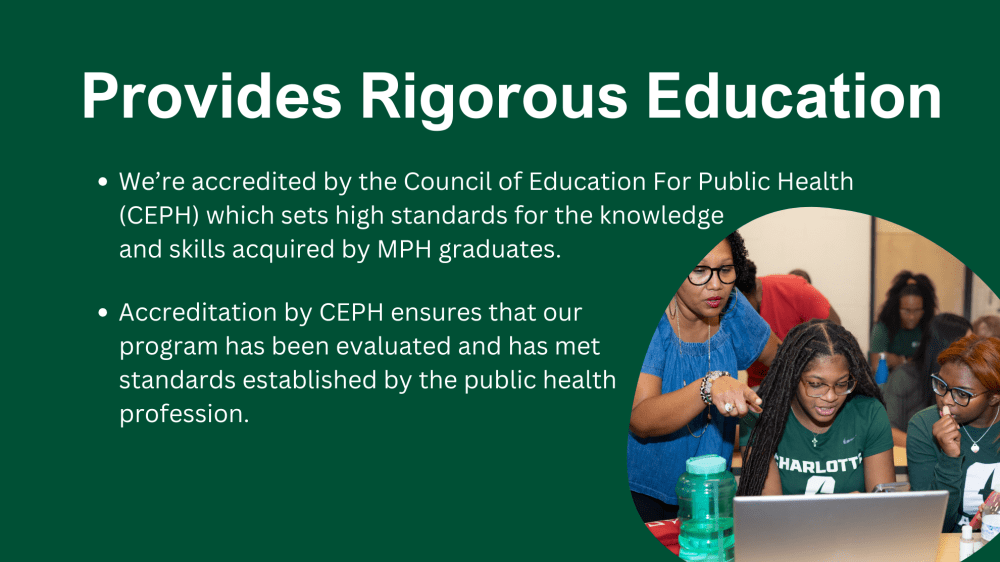Master of Public Health
MPH ADMISSIONS FOR FA24 IS NOW CLOSED.
Reviews of SP25 and and FA25 applications will begin in September 2024.
CHECK OUT OUR ADMISSIONS PAGE & FAQ.
A Master of Public Health (MPH) is a practice-oriented, interdisciplinary professional degree that will prepare you to make a positive impact on the health and wellness of people in your community to people across the globe.
The UNC Charlotte MPH program
The UNC Charlotte Master of Public Health (MPH) program is an in-person plan of study that prepares students to apply core principles of evidence-based, public health practice within a variety of professional settings; our graduates are competent members of the public health workforce. The MPH curriculum is based on the collective needs, expectations, and requirements of regional and national public health partners, employers, and accreditation bodies.
Students develop specialized skills in one of three concentrations:
- Community Health Practice (CHPR)
- Epidemiology (EPID)
- Physical Activity & Nutrition (PANU)
- Population Health Analytics (PHAN) – Not accepting applications at this time.
NOTE: UNC Charlotte’s MPH Program is NOT STEM-designated.
Mission, Vision, and Values
The MPH program has adopted the Department’s mission and vision as its own:
Mission: Advancing health equity and well-being in an urbanizing world.
Vision: Healthy communities partnered with responsive population health systems.
In its efforts to develop practitioners who can tackle today’s, and tomorrow’s, public health issues, the MPH program, and the larger Department of Public Health Sciences, values collaboration, community engagement, diversity, innovation, professionalism, health equity, and social justice.
The program prepares students to provide leadership in a variety of settings, including health-related agencies and organizations, hospitals, local and state public health departments, academic research centers and institutes, corporate disease management and wellness programs, non-profit agencies, and healthcare businesses and industries.
Contact for Additional Information
| MPH Program Department of Public Health Sciences College of Health and Human Services The University of North Carolina at Charlotte 9201 University City Boulevard Charlotte, NC 28223-0001 Email: MPHProgram@charlotte.edu |




